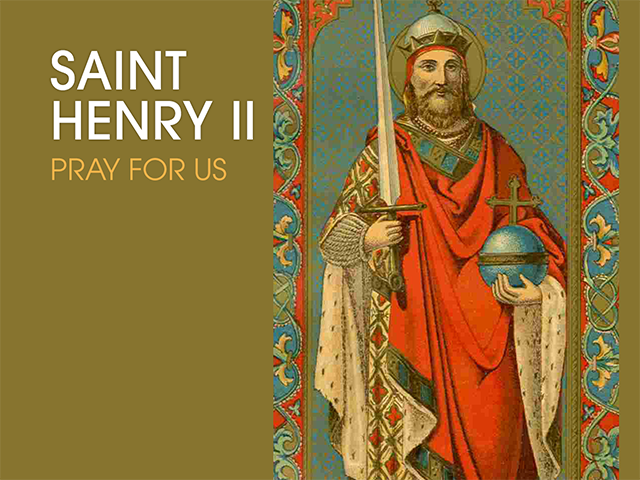



Saint Henry II (972-1024 A.D.) was born to the Duke of Bavaria and the Princess of Burgundy. He was a pious child and was given the education of a priest. However, his destiny changed when he succeeded his father as the Duke of Bavaria and took a holy woman as his wife. Upon the sudden death of his cousin he also became the King of Germany. Then, in 1014 A.D. he was crowned Holy Roman Emperor in St. Peter's Basilica by Pope Benedict VIII. St. Henry was determined to rule the empire with justice for the greater glory of God. He was known for his virtue and great faith; when entering any town, he would first pray in a church dedicated to the Blessed Virgin Mary. He also invoked the saints to help him in battle against pagan armies. He did much good for his subjects and for the Church, and was graced with many mystical experiences. He and his wife, St. Cunegundes, observed perfect chastity during their marriage and therefore remained childless. Henry tried to enter a monastery after the death of his wife, however, his application was refused because it was thought he would continue to do much good if he remained in the world. St. Henry is the patron of dukes, kings, childless people, the handicapped, and people rejected by religious orders. His feast day is July 13th